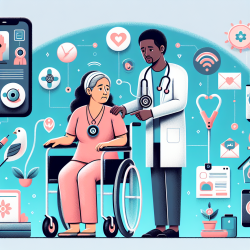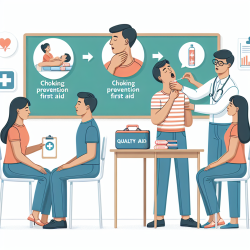The mental health crisis among youth has been exacerbated by the COVID-19 pandemic, as highlighted in the research article "Impact on Child Psychiatry" by Cama, Miyamoto, and DeJong (2022). The article underscores the need for significant improvements in the mental health care system for children and adolescents. As practitioners, it is imperative to implement research findings to enhance outcomes and encourage further investigation into innovative solutions.
Key Findings and Implications for Practice
The research identifies several critical areas affected by the pandemic:
- Social Isolation: The abrupt cessation of social interactions has led to increased loneliness, anxiety, and depression among youth. Practitioners should focus on creating virtual social opportunities and integrating social skills training into therapy sessions.
- Worsened Mental Health: There has been a notable increase in anxiety, depression, and behavioral problems. Tailoring interventions to address these issues and incorporating telehealth solutions can help mitigate the negative impacts.
- Educational Disruptions: School closures have widened the educational achievement gap, particularly for vulnerable populations. Collaborating with schools to provide mental health support and academic interventions is crucial.
- Parental Stress: The pandemic has heightened parental stress, which directly affects children's mental health. Offering family-centered therapy and resources for parental support can improve overall family well-being.
Implementing Telehealth Solutions
One of the significant shifts during the pandemic has been the rapid adoption of telehealth. This mode of service delivery has both benefits and challenges:
- Increased Access: Telehealth has reduced barriers such as commute times and has increased appointment attendance rates. Practitioners should continue to leverage telehealth to reach underserved populations.
- Privacy Concerns: Ensuring privacy during virtual sessions is essential, especially when discussing sensitive topics. Practitioners should establish protocols to secure private communication.
- Family Engagement: Telehealth allows practitioners to observe family dynamics in real-time. This can be an opportunity to provide immediate feedback and support to families.
Encouraging Further Research
The article emphasizes the need for ongoing research to understand the long-term impacts of the pandemic on child mental health. Practitioners are encouraged to participate in research initiatives and contribute to the growing body of knowledge. Areas for future research include:
- Long-term effects of social isolation on developmental milestones.
- Effectiveness of telehealth interventions in various settings.
- Strategies to support educational attainment among disadvantaged youth.
Conclusion
The COVID-19 pandemic has underscored the need for innovative and flexible approaches to child psychiatry. By implementing research findings and embracing telehealth, practitioners can enhance outcomes for children and adolescents. Continuous research and adaptation will be key to addressing the evolving mental health needs of youth.
To read the original research paper, please follow this link: Impact on Child Psychiatry.










